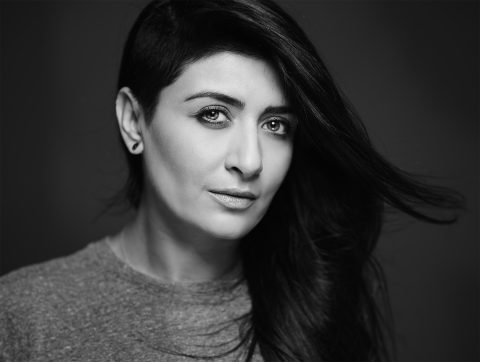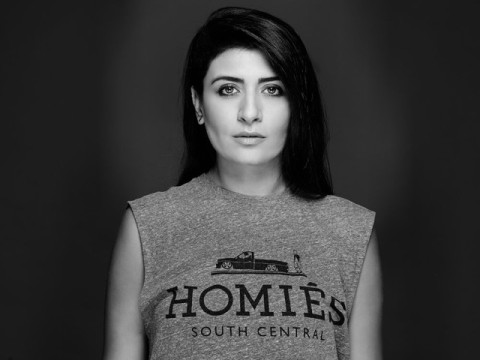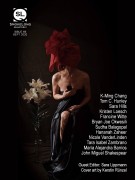This piece gutted me. So much so that I was stunned by the impact. As I read, I could not control my emotional response, which gained momentum and strength with each word. Part of this is due to the cumulative effect of the list you have crafted into a mother’s lesson and lecture and, perhaps, prayer. Was this piece always a list or did the form develop over the writing of it?
Thank you. I love long, breathless sentences for how they evoke the kind of feelings you describe. I think that with any wish that remains unsaid, there is always an ordering in the mind of how events might unfold, the possibilities, the consequences of each. When I started this story, it was an attempt to write a long sentence, but I had also been agonizing over news about Pakistan and the rise of violent religious sentiment amongst kids from educated families. The two impulses combined to form a list because I was imagining what one hopes for when raising children, and wondering what it would take for a mother to wish her own son dead rather than be part of something cruel.
The narrator tangles up future possibilities with calls to memory, creating a sort of nexus between the future and the past, the space right before life-altering decisions are made. This results in readers experiencing that moment of choice (right along with her son) as if it were trapped in time. Can you talk a little bit about how you see this nexus, both in this story and in the greater world?
I think about this a lot, this idea that every moment in life is a small shatter and only that, that one can never really be certain about what’s next, but that there is always responsibility sitting right next to chance, that we are always at this nexus between recollection and a projection forward, that each tendril of that shatter is a possibility. It’s a fascinating experiment, if nothing else, to observe how experience pushes you towards certain actions—in this case, the boy’s father’s death, being pulled into a group that promises to help him become pure, recognizing he has to “fix” being associated with someone who is impure—and watching to see whether the human impulse to indulge the past will win over the deliberate choosing of a new direction. I find it exciting to think of life that way instead of as a line with a beginning and an end.
There has been a larger cultural discussion about empathy, as of late, which seems to be asking if we need to engage in empathy for those who do wrong/horrible things. But of course, nothing happens in a vacuum, and no one lives without touching others. Can you talk about empathy in this piece as well as comment on this larger discussion?
Empathy seems to be a complicated, charged feeling these days, attached firmly to the ideas of right and wrong and certainly in this story, we see a mother withholding it from her own son, directing it instead to the neighbors, the others who are the target of hatred. In real life, I believe in empathy not because it is the kinder, better thing to do, but because I think empathy belongs to the person who feels it and to look at it as something to be wielded or bestowed is an abdication of one’s own power to the vileness (or not) of the act being considered. I am intrigued by our own reactions to these ideas—in this story’s case, the events are asking us to empathize with a mother who is wishing her own child dead, who is in turn is wishing the same thing for someone else, but we might be inclined to not see him as an empathetic figure. Ultimately, I like to understand, even if I don’t ultimately agree, and even if it is unpopular to understand.
What is it about flash that allows for such emotionally rich work? Why are you drawn to the form?
Besides the obvious answer, which is compression and the need to build an entire world as a background for the moment on stage, I think the structure of flash echoes the way emotions work in real life. Even long periods of difficulty or happiness are broken up into episodes of reflection or reasoning or imagination, each with its own emotional trajectory which, to my eye, is similar to the kind of telling that most flash does and which I love. In writing, I enjoy the control it requires over language, and the challenge to both create precise meaning and depth. Also despite my love for it, flash resisted me for a while, and it might be possible that I am someone who cannot say no to a challenge, even though it has gotten me in plenty of trouble before.
I think, right now (mid-pandemic) we are all indulging in more media than ever before. Can you tell me about a favorite movie or TV show you have returned to? Or one you think the rest of us should indulge in right now?
I have to admit that the media and I were no strangers even during normal times, although I have claimed it to be a study of human behavior and I will stick by that. I was introduced to Casa de Papel by my kid (somehow, unbelievably, we both seem to have arrived at the ages where he is recommending things to me—talk about a dystopian nexus) and I inhaled that show and cannot wait till enough time has passed so I can watch it again. Must watch, but in Spanish. I also have Coke Studio Pakistan on repeat while I write, for anyone curious about how devotion, poetry, rock, pop, and folk tradition come together.




 The core workshop of SmokeLong Fitness is all in writing, so you can take part from anywhere at anytime. We are excited about creating a supportive, consistent and structured environment for flash writers to work on their craft in a community. We are thrilled and proud to say that our workshop participants have won, placed, or been listed in every major flash competition. Community works.
The core workshop of SmokeLong Fitness is all in writing, so you can take part from anywhere at anytime. We are excited about creating a supportive, consistent and structured environment for flash writers to work on their craft in a community. We are thrilled and proud to say that our workshop participants have won, placed, or been listed in every major flash competition. Community works.